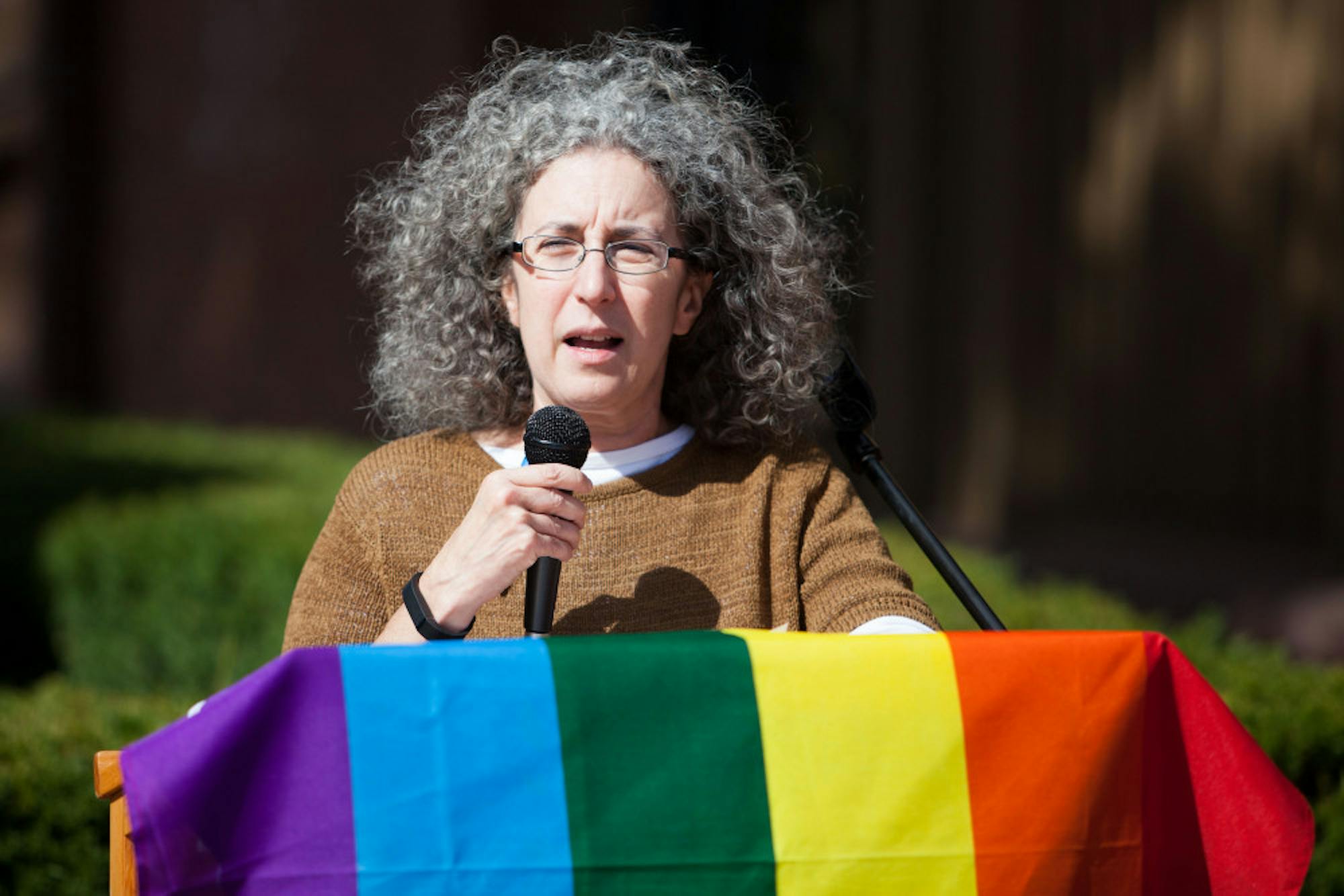The Mental Health Task Force released its report to the community on Oct. 10, World Mental Health Day. According to the report, the Task Force was launched in the fall semester of 2016 by University President Anthony Monaco.
“[The Task Force] was launched in December of 2016 ... to examine the state of student mental health on campus; assess mental health services and related resources; review policies and practices; and develop actionable recommendations with respect to education, outreach, and mental health promotion; services and resources; and policies and practices,” the report says.
The Task Force was comprised of an Undergraduate Working Group, a Graduate and Professional Working Group and a Models of Care Task Group, which examined clinical resources on the Medford/Somerville, Boston and SMFA campuses.
“There was particular attention paid to making sure that a multitude of voices were heard, and that all different constituencies were represented in terms of different schools,” Executive Director of Health and WellnessMichelle Bowdler said.
The report notes that the university saw nearly a 60% increase in new student sessions at Tufts Counseling and Mental Health Services (CMHS) between 2015 and 2018, with more than 25% of Medford/Somerville and Boston SMFA students using CMHS per year.
The university also began providing support for graduate students, citing the 2016 establishment of on-campus counseling at the Cummings School of Veterinary Medecine. The report says 21% of the Cummings School's student population uses these services.
Bowdler said she believes Monaco was inspired to create the Task Force in response to larger national trends in mental health.
“[Monaco] really wanted to do a comprehensive view of the issue on our campus. We’re lucky to have a president who does care so much about health issues, and I think he had had this in mind for a while,” she said.
The Task Force report noted that while there are university-wide services available, the university does not have a standardized approach for addressing mental health issues.
“Recognizing student mental health and well-being as a university-wide priority, the Task Force recommends further exploration of the potential to develop an Integrated Wellness Outreach Center to promote holistic student health, mindfulness, nutrition and well-being across the university,” the report says.
The report included a variety of other recommendations to maintain or improve the way Tufts addresses mental health, including exploring new evening hours for CMHS and telehealth, hiring more counselors on campus and considering a first-year course focused on mental well-being.
The Task Force also focused on the approximately 40% of students who study abroad at Tufts, noting that unfamiliar cultural norms and new experiences may affect mental health.
“Tufts Global Education (formerly Tufts Program Abroad Office) includes mental health, self-care, and wellness as a central component to their pre-departure, in-country orientation, in-country support services, and return programing,” the report said.
The report also mentions a four-year partnership with JED Campus, which includes a grant awarded to the university from the Hudson’s Bay Company Foundation in November 2018 that aims to implement improvements in mental health based on resources across different campuses.
Bowdler said the Task Force is working to reduce stigma and increase prevention and community building, instead of simply looking at treatment options.
“My background and degree are in public health, and so for me, as someone who believes really strongly in that model, I believe that you can’t tackle any large issue without looking at prevention, treatment and response,” Bowdler said. “We want our students to be engaged academically and socially, but at what point do we also need to be thinking about sleep and exercise and self-care and making sure that somebody has a strong community of support around them.”
The Task Force may also create a Steering Committee to guide mental health improvements at Tufts, which will be chaired by Monaco.
“Many recommendations have already been implemented and the creation of the steering committee is a strong statement that this will be living and ongoing work,” Paul Summergrad, who serves as co-chairman of the Task Force with Monaco, said in an email to the Daily.
“Plans for the Steering Committee are still in early development and we will share additional details as they are available,” Monaco's Chief of Staff Michael Baenen told the Daily in an email.
Baenen said that many of the Task Force's policy-focused recommendations will not cost the university additional funding, but other recommendations addressing campus mental health resources would require university investments.
“Given the constraints on School budgets across the university, we recognize that the Schools will need to assess the recommendations to refine and prioritize them and sequence implementation over time," Baenen said. "The Task Force has also encouraged further exploration of opportunities for the university to seek private philanthropic support for initiatives to support student health and well-being.”
Bowdler noted how involvement in the community contributed to the report.
“I feel like there’s deep engagement in the Tufts community from students, staff and faculty, to address student mental health. In my position, that is very heartening to me to see not only a commitment to mental health but a commitment that’s lasted over many years, with Ears for Peers, Active Minds, the Senate [and] a number of the identity-based centers,” she said.
Mental Health Task Force releases report after 3 years

Executive Director of Health and Wellness Services Michelle Bowdler speaks during the National Coming Out Day rally on the Lower Campus Center Patio on Oct. 8, 2014.





